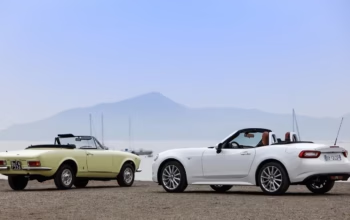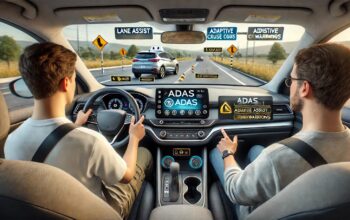Uzone.id – The automotive industry continues to transform, driven by technological innovation, changes in consumer behavior, and environmental awareness. Technological developments such as artificial intelligence, big data, and the Internet of Things (IoT) continue to encourage the development of the automotive industry.
One of the trends is the emergence of the sharing economy. The sharing economy is a term used to describe recent changes in how individuals and agents consume resources and services. This concept allows individuals to share assets with others.
In the automotive field, this concept has changed how one views transportation ownership and accessibility. The emergence of platforms such as Uber, Lyft, and Turo is an example of a revolution that emerged from the concept of sharing economy.
The emergence of new businesses in the concept of the Sharing Economy
Simply put, the sharing economy has transformed an asset into a service that everyone can access anytime, anywhere. This concept has created a new, innovative, efficient business model. Here are some of them:
1. Lease a car term
The sharing economy created a new business model that allowed renters to rent cars directly to owners through online platforms. One of the companies provides a place to register their cars for rent, and renters can book a vehicle.
Turo and Getaround apps provide exceptional services for users who want to rent a car within a certain period of time. Renters only need to enter the location and date when the user needs the vehicle.
Automatically, the app will display a list of results that can be selected based on price, car type, and shipping costs. Unfortunately, even though the price to be paid is stated at the beginning, tenants may have to pay more if they purchase an additional protection package.
2. Carpooling
One of the companies that presents a carpooling feature or sharing rides with others with the same goal is Uber. Passengers can save up to 20 percent in one trip through the Uber Pool feature.
Unfortunately, this business is still limited to Australia and New Zealand. However, this business model is brilliant. Uber Pool created a sustainable solution to get more people to use fewer cars to travel.
3. Business subscription model
The car subscription business has changed how consumers access and use vehicles and reshaped the future of the automotive industry. This business model allows users to subscribe to access to different types of vehicles as needed.
Users will be asked for a monthly subscription fee with no down payment per rental (the cost ranges from $400-800 per month). This concept provides convenience and flexibility for people who do not need ownership status and want to save money from vehicle maintenance and insurance obligations.
Interestingly, users can try different types of cars without buying them. Are you ready to provide this model subscription service? Usually, this service is provided by OEM Automakers, Dealerships, Car Rental, and Fleet Leasing Providers.
Benefits Brought by the Sharing Economy
Essentially, the sharing economy prioritizes access over ownership. This concept has also brought a series of impactful benefits.
Slowly, the economy of variety has helped reduce the number of private vehicles on the road. On the other hand, for private vehicle owners, the sharing economy concept allows them to earn additional income through the car rental business.
Consumers are also more flexible in choosing modes of transportation, especially for those who do not own a private vehicle because they do not want to be tied to maintenance costs.
As a result, this concept has indirectly helped reduce congestion and the need for land for parking, as well as helping to reduce carbon emissions because the number of vehicles is decreasing on the streets.
The impact faced by the automotive sector in the sharing economy
Although it has many benefits, implementing the sharing economy concept also brings a series of challenges. The increase in online transportation and car-sharing services has led to a decline in new private car ownership, impacting car sales and revenue streams.
For this reason, manufacturers who want to develop in this new landscape need to use holistic learning with a focus on providing mobility services rather than just selling. On the other hand, collecting and using large amounts of data have raised privacy and security concerns.
Writer: Aisyah Banowati Editor: Hani Nur Fajrina






